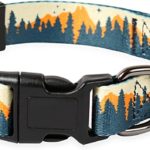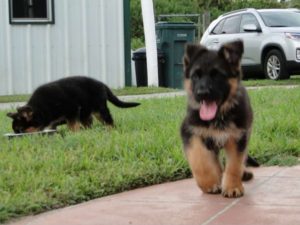At 1001doggy.com, we understand how important it is to keep your furry friends safe and happy. One of the most important ways to do this is by choosing the right collar for your dog. A collar serves many purposes, including:
- identifying your pet,
- keeping them safe and secure,
- helping with training.
However, not all collars are created equal, and it’s essential to choose a collar that’s both safe and effective.

In this article, we’ll cover everything you need to know about choosing a safe collar for your dog. From the different types of collars available to how to properly fit a collar, we’ll provide you with all the information you need to keep your pet safe and happy.
Types of Collars
There are several types of collars available, and it can be challenging to choose the right one for your dog. Here are the most common types of collars and their uses.
Flat Collars
These collars are the most common type of collar and are suitable for most dogs. They are perfect for identification purposes and are comfortable for your pet to wear.
Martingale Collars
These collars are designed for dogs that tend to slip out of their collars. They tighten when your dog pulls, preventing them from escaping.
Head Collars
These collars are designed to give you more control over your dog’s head and are useful for training.
Harnesses
Harnesses are an excellent option for dogs that pull or have respiratory issues. They distribute pressure evenly across your dog’s chest and are comfortable for your pet to wear.
How to Properly Fit a Collar
Once you’ve chosen the right collar for your dog, it’s essential to make sure it fits correctly. A poorly fitting collar can be uncomfortable and even dangerous for your pet. Here’s how to properly fit a collar:
- Measure your dog’s neck: Use a soft measuring tape to measure the circumference of your dog’s neck.
- Add two inches: Add two inches to the measurement to ensure the collar is not too tight.
- Adjust the collar: Adjust the collar to the correct size and make sure it’s snug but not too tight.
- Check the fit: Check the fit by placing two fingers between the collar and your dog’s neck. If you can’t fit two fingers, the collar is too tight.
Safety Tips
Here are some additional safety tips to keep in mind when choosing a collar for your dog:
- Avoid collars that are too tight or too loose. A collar that’s too tight can cause discomfort, while a collar that’s too loose can slip off.
- Choose a collar made from high-quality materials. Collars made from cheap materials can break or cause skin irritation.
- Always supervise your dog when they’re wearing a collar. A collar can become caught on objects, which can be dangerous for your pet.
- Regularly check the fit of the collar. As your dog grows or loses weight, you may need to adjust the collar’s size.
Conclusion
Choosing a safe collar for your dog is essential to their overall health and well-being. By understanding the different types of collars available and how to properly fit a collar, you can ensure your pet stays safe and comfortable. Remember to always supervise your pet when they’re wearing a collar and regularly check the fit to avoid any accidents. With these tips in mind, you’ll be able to choose the perfect collar for your furry friend.




